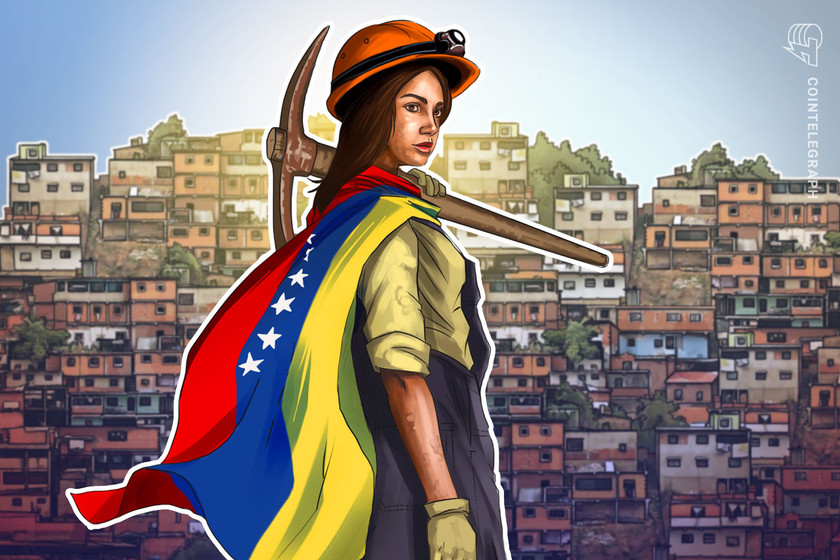Venezuela shuts down crypto mining facilities, exchanges amid corruption probe


According to Venezuela’s attorney general office, government officials were running parallel oil operations with the assistance of the national crypto department.
Venezuela’s energy supplier has shut down crypto mining facilities throughout the country as part of a reorganization of the national crypto department and ongoing corruption investigations involving the country’s oil company.
According to local media reports, crypto mining companies, and tweets from Venezuela’s National Association of Cryptocurrencies, mining facilities were shut down in the past days in the states of Lara, Carabobo and Bolívar. It is unclear how many crypto firms were affected. Some crypto exchanges were also ordered to cease operations.
#ULTIMAHORA se confirma que fue solicitado el apagado de las granjas de mineria digital en el Estado Bolívar. Consideramos esta un medida arbitraria, qué va en contra de los intereses de la industria privada.
— Asonacrip (Asociación Nacional de Criptomonedas) (@AsonacripVe) March 25, 2023
The closure of crypto mining facilities is believed to be part of an ongoing investigation of corruption involving Venezuela’s oil company PDVSA and the country’s crypto department.
Comunicado relacionado a los recientes cortes de servicio eléctrico experimentados en todas las infraestructuras de hashrate del país
——————————————
Announcement related to the recent power cuts in all Venezuelan hashrate infrastructures. pic.twitter.com/V4IRlLUL0r
— Doctorminer® (@doctorminer_) March 24, 2023
Venezuela’s attorney general, Tarek William Saab, disclosed on March 25 that government officials were allegedly running parallel oil operations with the assistance of the national crypto department. Saab commented on Twitter:
“This network used a conglomerate of commercial companies to legitimize the capital obtained from sales through the acquisition of crypto-assets, personal and real estate.“
According to Saab, at least 10 people have been arrested in connection with the investigations, including Joselit Ramirez Camacho, who led the crypto department since its inception in 2018, overseeing crypto tax rules and the country’s cryptocurrency PetroDollar (XPD). According to earlier reports, Camacho was arrested on March 17 as part of the investigation.
Tarek William Saab: El primer caso que queremos exponer se refiere a una nueva trama de corrupción en Pdvsa, la número 31, que incluye esta vez a la Superintendencia Nacional de Criptoactivos (Sunacrip)
— Ministerio Público venezolano (@MinpublicoVEN) March 25, 2023
Since June 2020, Camacho has been listed in the United States Most Wanted List. At the time, Department of Homeland Security Investigators issued a bounty of up to $5 million for any information that would lead to the capture of the Petro’s supervisor. Authorities alleged that Camacho had “deep political, social and economic ties” to suspected narcotic kingpins, including Tareck El Aissami, the former vice president of Venezuela.
Venezuela’s president Nicolás Maduro announced the reorganization of the National Superintendency of Crypto Assets in a decree issued on March 17. Maduro’s administration claimed the decision was intended to protect the country’s citizens from the negative effects of economic sanctions, among other reasons.
Magazine: Best and worst countries for crypto taxes — plus crypto tax tips



